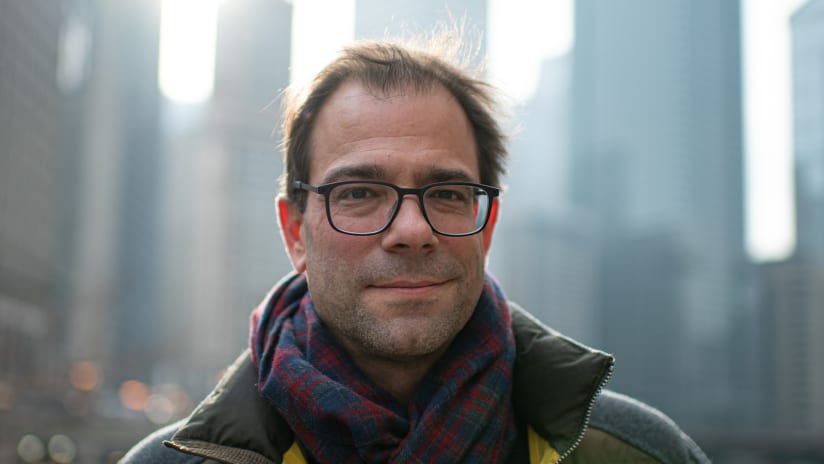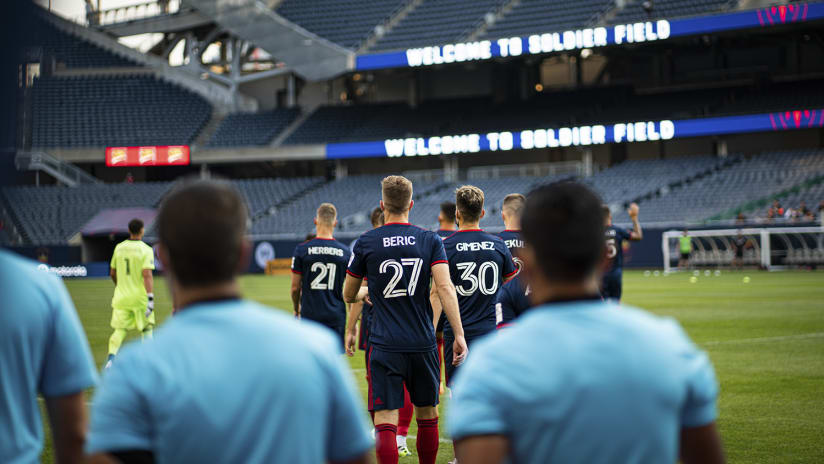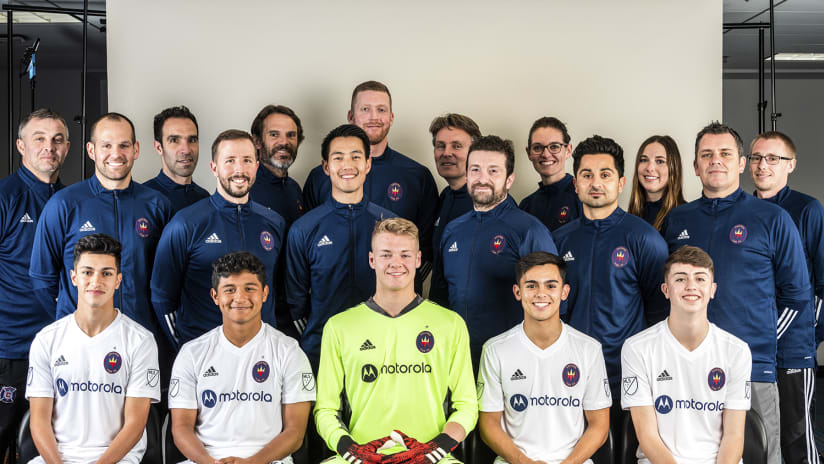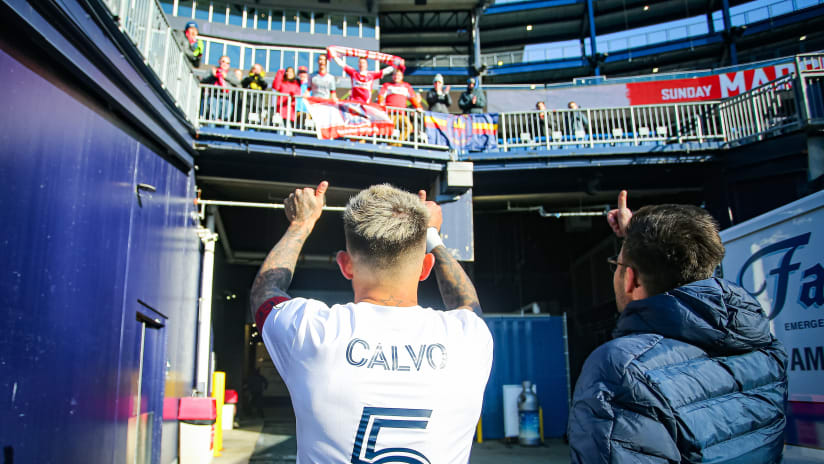Georg Heitz is taking a breath. It’s been a whirlwind day of introductions, debriefing sessions, and now in-house media appearances, and the new Fire Sporting Director wants to take a beat before we speak. As the lights and set for his introductory photoshoot are disassembled behind him, he sips some water and smiles at me, ruefully.
“Jetlag, you know…it makes me struggle to get the words right.”
You wouldn’t guess, after Heitz smiles again and indicates that we start. He becomes intense, focused and precise, as we talk about the rapid transition that has seen him swap life as one of the pre-eminent figures in Swiss football, to take on the foundational challenge of leading Chicago Fire FC’s next incarnation. Delving deep into one of the several languages he speaks, to talk about his convictions in the middle of a fast-paced day of first impressions, does not seem to phase him.
- Welcome, Georg: Heitz Named Sporting Director
- See Also: 2020 Regular Season Schedule Unveiled
It all seems to embody a virtue Heitz references a couple of times in our conversation, namely, “You have to stay calm in difficult moments…”
With a head coach to appoint and a roster to build, Heitz could be forgiven for not feeling calm at the scale of the immediate challenge, and certainly he’s realistic when asked about immediate plans, though he doesn’t lean into the circumstances as an excuse.
“It’s clear,” says Heitz. “I’d love to share thoughts regarding academy, and the medical team we will have, or whatever. But the priority at the moment will be the coaching staff and their roster. But I am also someone who hates alibis. Excuses. So, we should try not to give alibis to anyone, and that includes myself. ‘We don’t have time?’ OK. It’s a privilege to work in this situation and I want to be aware of this every day.”
It’s also true though, that as much as there are immediate issues and crucial appointments to address, the structural role of Sporting Director that Heitz now occupies, necessarily sits a little outside the weekly contingencies of the demands of a season. Even as immediate decisions are made, he’s already planning long term:
“Look, my conviction is that the head coach has not got the time to properly evaluate players, because he has to take care of 30 players, take care of the whole staff, sponsors, media, of all these things… So I think it’s important that they have somebody, or more than one person, who doesn’t have to deal daily with players and staff, but has time to make strategic reflections about the future.”
“When we plan the roster for the new season, we already have to think about 2021, and we have to be smart. One of the lessons I have learned is that the fast deal is not always the good deal. You have to do the smart transfers, for example. Bring players in, but do it in a smart way. Think more than three or six months in advance.”
We talk a little about Heitz’s specific experience with Basel — particularly some of the giant-killing feats in the Champions League. We talk about what he has learned from helping that club find its niche in the global game, culturally and economically, just as MLS clubs are being challenged to do, as the league and global sport evolves:
“Basel was a special situation, because we were giants in our league, but small in a European context, so it wasn’t always easy to handle. But you learn. I’ve learned that with a philosophy, stability, mentality, atmosphere…you can work wonders. We beat clubs like Liverpool, Chelsea, Manchester United, Bayern Munich…Not always — we had heavy losses against them (too). But you can achieve wonders. You have to believe. But mainly you have to have a strategy and stay calm.”
As for the opportunity in translating his experience to MLS, “I know so many people in soccer, and so many people told me in the last few months, ‘Watch out for MLS. It’s exploding — rising.’ You Americans, you always want to be the best in the world. And they will not stop investing time, money, thoughts until they are the best. This will take time. This is clear. But it’s thrilling what’s happening here. I was surprised how well organized everything is — we Europeans can learn a lot.”
Still, the move was ultimately decided after in-person meetings with owner Joe Mansueto and Club President Nelson Rodríguez. As Heitz puts it, those initial meetings transformed his perspective:
“Very special. The truth is, when I came here the first time for the interview, I was very undecided, unsure. But within five minutes of coming into the room I had the feeling it was not an interview, but some kind of brainstorming with friends. They gave me such a good feeling — Nelson, and then Joe, with his personality. He’s so calm, and so down to earth. I was so impressed. When I walked out of that room I said, ‘If they take me, then it’s a no-brainer.’”
And now Heitz’s brain power is being directed in support of Chicago Fire, and his vision for the technical identity of the Club:
“I like to watch active teams. I want a team to be active. This is also the reason why we have to choose the head coach carefully. Because he will be decisive for the philosophy. Active teams. It must be entertaining.”
We’re winding up, but as Heitz gets to his feet for the next demand on his time, he’s still talking about the long term vision and short term challenges in one breath. “Everyone claims to need time in soccer. It will take some time, but I am also convinced.” And with a final smile and a firm handshake he’s off to the next introduction — and to plan for a big future.





